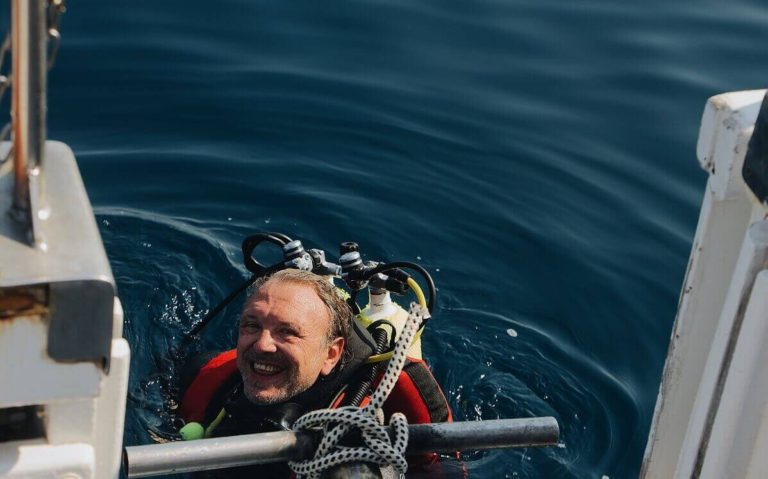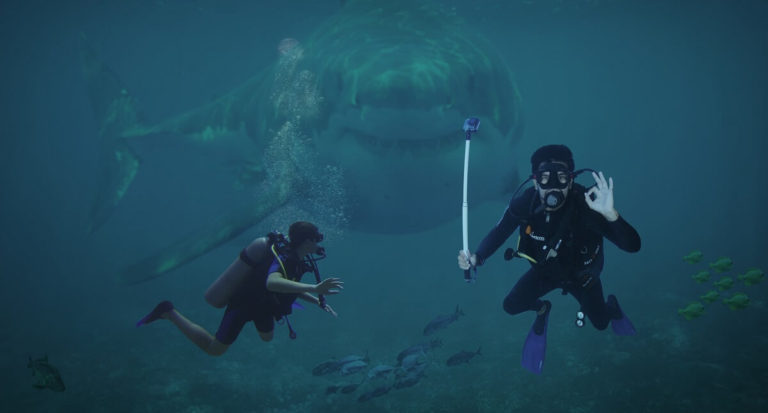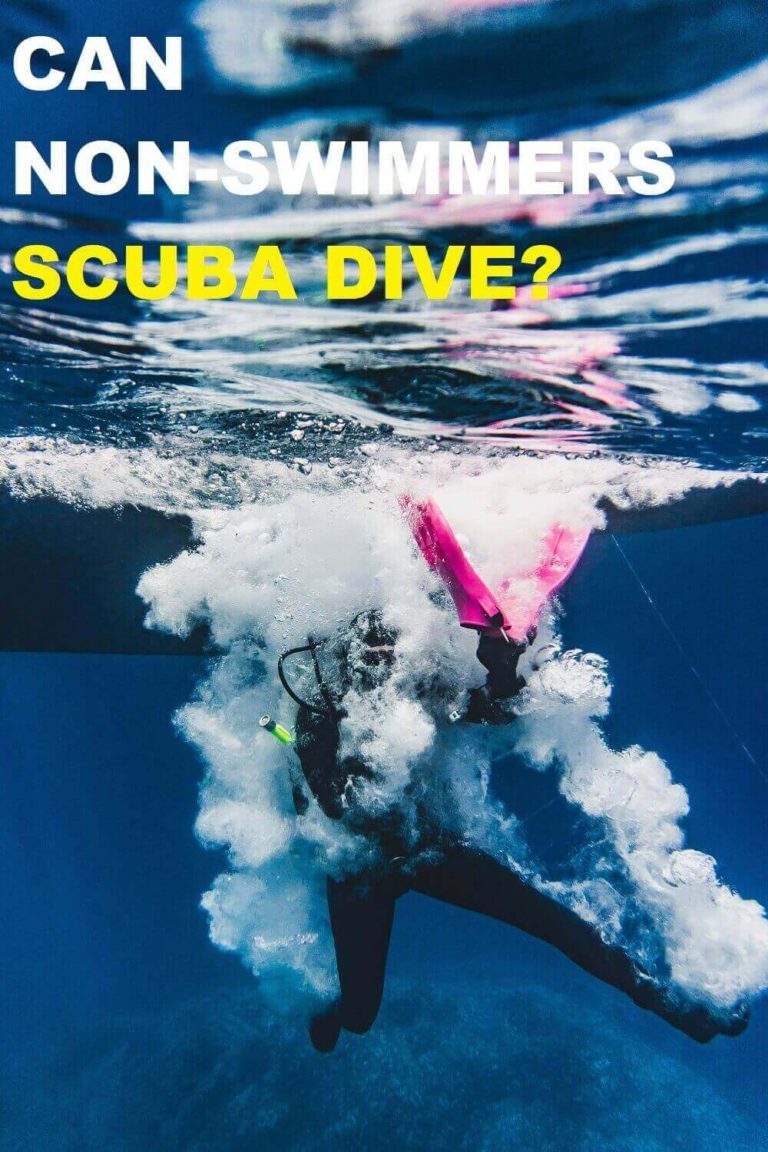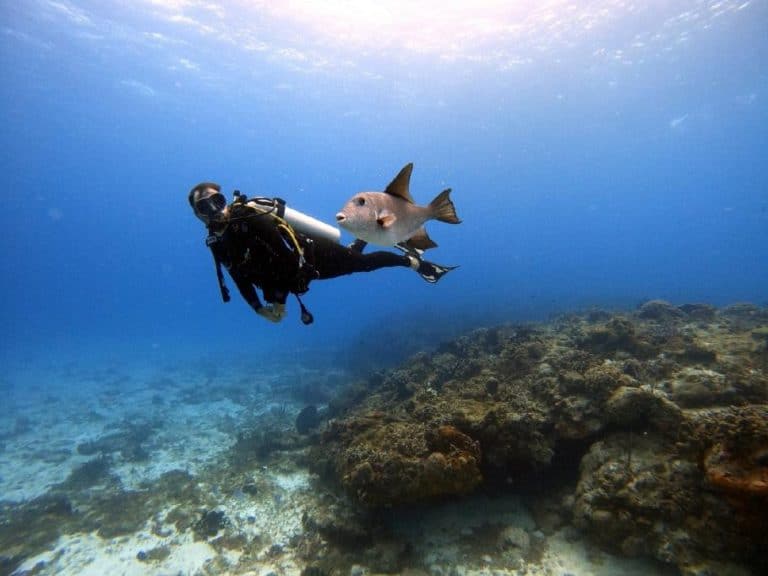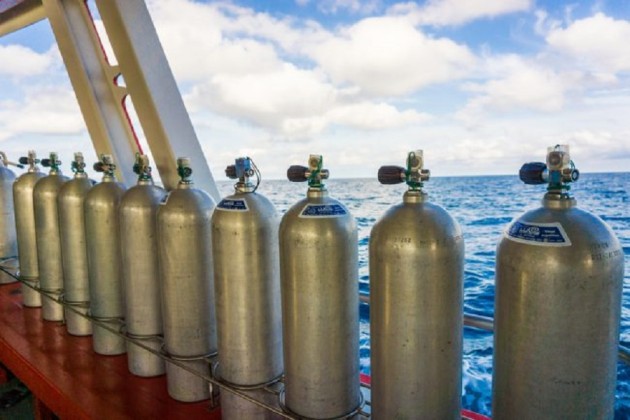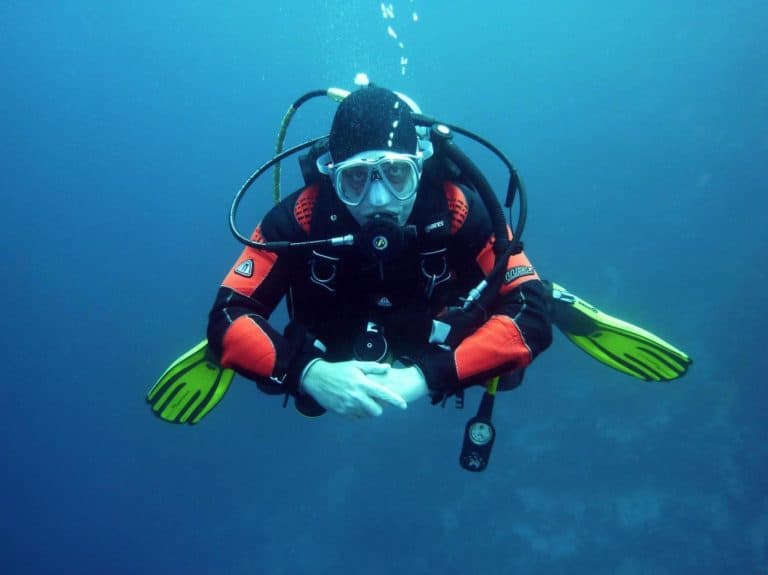Can You Scuba Dive While Congested?
Congestion of the upper respiratory system is very uncomfortable whether planning a dive or not. Scuba diving requires that you can breathe and equalize underwater. Congestion in the nose, ears, lungs, or sinuses can prevent you from equalizing. So can you scuba dive while congested?
You shouldn’t scuba dive while congested as the fluid buildup will make it very difficult to equalize. Common colds, flu, and allergens are among the top causes of congestion in many people. Mucus and phlegm produced to protect the system cause congestion making it difficult to breathe and clear normally.
Mucus and phlegm produced, block the nasal passage and the Eustachian tube. This makes it very difficult to clear the ears even when on land.
Everyone experiences congestion differently. Some people will have congested sinuses only while others can experience congested nose, ears, and lungs.
Unfortunately, some of these symptoms show up as soon as you land in a new vacation spot. If you had already scheduled a dive trip, you are left in a dilemma. On one hand, you hope the congestion clears up sooner to avoid cancellation and on the other, this could be your dream dive spot and you don’t want to miss the experience.
In this article, we’ll dive deeper into scuba diving while congested, should you dive with a cold, can decongestants solve the problem and so much more.
Keep reading to learn more!

Is It Okay To Scuba Dive While Congested?
No, you shouldn’t scuba dive while congested as it will be hard to equalize.
A diver can experience difficulty clearing the ears while descending, ascending, or during the dive. This is risky as it could result in ruptured eardrums or damage to the middle ear.
If experiencing congestion try equalizing on land, if you can hardly clear your ears you shouldn’t go diving.
In addition, if you can’t breathe through both nostrils, don’t go diving either. Sometimes when people have the flu or cold, the nose gets congested and you have to breathe through your mouth.
Now imagine going diving with such congestion. This is impossible because you need the regulator in your mouth for air supply. This will be very uncomfortable since you can’t breathe through the nostrils.
Congestion of the nose or sinuses causes headaches, teary eyes, exhaustion, fever, and body aches among many other symptoms.
While scuba diving a clear mind and fit body are also important. It will be quite difficult to enjoy diving when your ears, eyes, mouth, and body parts are killing you with pain.
A sickly diver is most likely to make poor judgments while diving which will increase the risk of decompression sickness among other diving injuries.
If you have congestion resulting from a cold, flu, or allergens it’s best to just relax take lots of soup and let the body heal itself. Deciding otherwise could end up causing you more pain or worse.
READ MORE: Will Scuba Diving Hurt My Ears
Can You Scuba Dive with a Cold
No, you shouldn’t scuba dive with a cold.
Common colds can cause severe headaches, runny nose, coughing, fever, congestion, and fatigue. All these factors combined make it impossible to go scuba diving.
Diving with a cold that makes you cough can increase the chances of taking in water and drowning.
It is also difficult to sneeze or blow your nose underwater.
Depending on the individual, submerging their body into the water can actually make the cold worse.
Since the virus causing a cold can’t thrive in warm temperatures, those with a cold should always stay warm.
Just like in congestion of any other part of the upper respiratory system, a cold can result in mucus production. This will in turn cause congestion of air pathways.

Can You Dive With a Runny Nose
No, you can’t dive with a runny nose. This is because it would be impossible to blow your nose underwater.
A runny nose in most cases caused severe headaches and itchy or painful eyes.
In addition, a runny nose can prevent you from doing even the simplest tasks such as cleaning the house or walking your dog. The body feels exhausted and only craves some rest.
Diving can take a toll on the body as divers have to carry the gear and equipment and stay out in the sun.
If you ever had a runny nose you know long exposure to the sun isn’t the best place to be. The fresh air will help clear the nose for some time but then the sun can make the headache worse.
It’s best practice to wait until the runny nose is cleared before you can go diving.
Can You Scuba Dive With Allergies
Pollen, dust, fur, or any other form of allergens will cause the receptors in your upper respiratory system to swell(inflammation).
This inflammation causes congestion and sometimes triggers mucus production as a defense mechanism.
Allergens will cause congestion in the nose and sinuses making it difficult to clear the ears and nose. In severe cases, the inflammation can cause blockage of air pathways. Inability to clear the sinuses can cause sinus barotrauma.
Scuba diving with allergies will depend on the individual and the severity of the reaction.
If this can be controlled by taking medication, then diving is possible. However, if the allergic reaction requires hospitalization to manage then avoid diving.
You wouldn’t want to have airways closing up on you while 60 ft. underwater. This could be fatal or end up in severe injuries.
Always consult with your doctor if you have existing allergies. The doctor can clear you for diving and give you some medications to control the allergies.
If the allergies suddenly develop while on a trip, it’s advisable to consult a doctor and probably wait for the reaction to end before diving.
High altitudes while flying can expose you to various allergens and dry air which may trigger allergic reactions.

How to Get Rid Of Congestion before Diving
There are many decongestants available over the counter. These range from saline nasal washes to nasal sprays to pills.
Saline nasal washes are mostly used since they do not have major side effects on the body. The downside to these is that the clearing may not last very long. When congestion keeps reoccurring frequent flushing of the sinuses is required.
Nasal sprays and pills may have an extended clearing period but also have side effects. These include drug resistance, feeling dizzy, nauseous, or fatigued.
A decongestion medication may seem like a good idea to clear you for scuba diving but can also be risky.
If the effects wear out while diving, there are many risks involved. These range from drowning, inability to equalize which could cause ear damage, decompression sickness, confusion, and inability to breathe.
Sudden blockage of the nose, ears, or congested sinuses can cause panic. In response, the diver makes uninformed decisions increasing their chances of diving injuries.
If congestion is mild, try taking the medication and record how long the effects last. With this data, you can make an informed decision whether to go diving or not.
In severe allergic reactions, avoid diving until you recover fully or get clearance from your doctor.
Parting Words
We’ve seen that diving while congested should be avoided at all costs. Congestion makes clearing and equalizing very difficult and sometimes very painful. Technically if you are having trouble breathing while on land it will be difficult to breathe underwater.
We’ve also seen that you should avoid diving if you have a cold, runny nose, and allergies. All these can manifest on their own but in most cases will cause congestion due to mucus production.
Don’t underestimate a cold it may seem small while on land but underwater can make the symptoms worse.
Lastly, we’ve looked at decongestants and if they are any good. Most decongestants will work just fine on land. Underwater pressure can make the side effects unbearable making it impossible to dive.
The best practice is to first get in good shape and then schedule your next dive. Make sure all congestion is cleared, you can equalize properly on land and your body is ready and healthy for diving.


